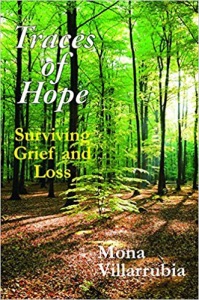
I am a staff chaplain in a hospital with four critical care floors and a cancer unit, and naturally I spend a lot of my time on those critical care floors. My time is spent with patients and families who are grieving. They are all grieving the loss of their “normal” – life will never be the same. Patients are grieving the loss of health and independence, at least temporarily. They may also be facing the loss of their careers, which for many people is where they find meaning and purpose, especially if they have no children.
For elderly patients the situation is even more traumatic. For them loss of independence signals the beginning of the end. They know they will quickly lose muscle tone lying in a bed all day, and if they have suffered any kind of fall they are probably told they can no longer live alone, that they may need to move to a “facility” if their family cannot take them in. The staff avoid the words “Nursing Home” because for so many patients these words summon unbidden memories and smells, a foreboding and a sense of horror. Most everyone who is elderly has had a friend or family member in a nursing home, and has left it begging their own family, “please don’t ever put me in one of those places.” And now here they are discussing “Long Term Care Facilities.” For families who know their loved one’s wishes there is tremendous guilt even having the conversation.
Where can hope be found in that room? As a chaplain I do not claim the right to offer hope. Pious platitudes are an offense to the emotional sensibilities of all concerned. So then what? At first all that can be done is to sit as people digest all they have heard and offer them a supportive presence. At some point a simple question can refocus the emotions in the room to good memories and life’s blessings. It is easier for the people in the room to access “hope” looking backwards. To an elderly spouse or life partner, “How long have you been together?” This often elicits stories of first meetings and life’s milestones, usually accompanied by smiles and tears, both. The next step is harder: Where is hope now, in this room in this moment? A comment or question about the care being offered on the unit often leads to expressions of gratitude. The focus of hope becomes timely assistance when the nurse’s button is pushed, pain medication when needed, the gift of clean bedding, getting the meal that was requested, the kindness and gentleness of staff. Hope can also be present in the person of a relative not seen for years and the opportunity for reconciliations and mended fences.
And then there is the question of future hope. As a chaplain I make no assumptions about people’s future hopes. Even those who self-describe as “not religious” will ask for prayers of healing, and may want to believe in more than simple annihilation at the moment of death. Even atheists desire a way of making sense of the life and death of their loved one – did it matter that they lived? The scientific understanding of the cycle of birth and death, of the reabsorption and recycling of matter, can provide a sense of immortality – a future hope. And for everyone in the room the sharing of memories reminds them that the loved one will live on in their stories. Their loved one was part of the great tapestry of human existence and changed the history of the world for all time – another source of future hope.
If they are of the Christian, Muslim, or Hindu faiths, devoted or even loosely affiliated, prayers of intercession are a tradition, especially in times of crisis. People’s beliefs in the efficacy of these prayers can often resemble a child-like, “Santa Claus” view of God. But there is another view that makes such prayers meaningful: prayer doesn’t change God it changes us. In prayer we place ourselves consciously and intentionally in the presence of the Divine – the source of life and healing, courage and hope. That awareness can bring a sense of peace into the ICU room. Physical healing may not be the outcome of these prayers, but there is the possibility of spiritual and emotional healing. The family is reminded that they are not alone. They have a source of strength and courage that comes from the Divine who is present within them, in the room, in the universe, and will support them in whatever comes. And furthermore, the patient is not alone now, and never will be alone. All that is remains in the “Hands” of God, and for theists that is the Future Hope.

